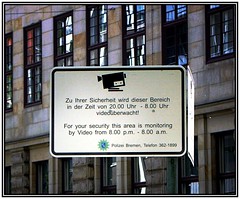| 8052956793 | Accent | A distinctive mode of pronunciation of a language, especially one associated with a particular nation, locality, or social class. |  | 0 |
| 8052959555 | Anatolian Hypothesis (Sedentary Farmer Thesis) | Hypothesizes that the speakers of the Proto-Indo-European language lived in Anatolia during the Neolithic era. When the Neolithic Revolution took place in the seventh and sixth millennia BC, the speakers spread over Europe. |  | 1 |
| 8047755655 | British Received Pronunciation (BRP) | The dialect of English associated with upper-class Britons living in London and now considered standard in the United Kingdom. |  | 2 |
| 8052996307 | Bi-linguality | Speaking two languages. |  | 3 |
| 8047755656 | Creole or creolized language | A language that results from the mixing of a colonizer's language with the indigenous language of the people being dominated. This language is a formal official language. |  | 4 |
| 8047755657 | Denglish | Combination of German and English. |  | 5 |
| 8047755658 | Dialect | A regional variety of a language distinguished by vocabulary, spelling, and pronunciation. |  | 6 |
| 8047755659 | Ebonics | Dialect spoken by some African Americans. |  | 7 |
| 8047755660 | Extinct language | A language that was once used by people in daily activities but is no longer used. |  | 8 |
| 8047755661 | Franglais | A term used by the French for English words that have entered the French language; a combination of francais and anglais, the French words for "French" and "English," respectively. |  | 9 |
| 8047862781 | Ideograms | The system of writing used in China and other East Asian countries in which each symbol represents an idea or a concept rather than a specific sound, as is the case with letters in English. |  | 10 |
| 8052975645 | Indo-European | Relating to the family of languages spoken over the greater part of Europe and Asia. These include Germanic, Romance, and Balto Slavic |  | 11 |
| 8047866508 | Isogloss | A boundary that separates regions in which different language usages predominate. |  | 12 |
| 8047755662 | Isolated language | A language that is unrelated to any other languages and therefore not attached to any language family. |  | 13 |
| 8052984024 | Kurgan Hypothesis (Nomadic Warrior Thesis) | Hypothesizes that language spread through conquest of these Kurgan nomadic warriors. |  | 14 |
| 8047755663 | Language | A system of communication through the use of speech, a collection of sounds understood by a group of people to have the same meaning. |  | 15 |
| 8047755664 | Language branch | A collection of languages related through a common ancestor that existed several thousand years ago. Differences are not as extensive or as old as with language families, and archaeological evidence can confirm that the branches derived from the same family. |  | 16 |
| 8047755665 | Language family | A collection of languages related to each other through a common ancestor long before recorded history. |  | 17 |
| 8047755666 | Language group | A collection of languages within a branch that share a common origin in the relatively recent past and display relatively few differences in grammar and vocabulary. |  | 18 |
| 8047755667 | Lingua franca | A language mutually understood and commonly used in trade by people who have different native languages. |  | 19 |
| 8047755668 | Literary tradition | A language that is written as well as spoken. |  | 20 |
| 8053006263 | Mono-linguality | Speaking only one language | 21 | |
| 8053009002 | Multi-linguality | Speaking several languages. It is said that multi-lingual speakers out number mono-lingual speakers. | 22 | |
| 8053024227 | National language | Language that has some connection-de facto or de jure-with people and the territory they occupy. | 23 | |
| 8053018855 | Nostratic Hypothesis | Hypothesized ancestral language of Proto-Indo-European, as well as other ancestral language families | 24 | |
| 8047755669 | Official language | The language adopted for use by the government for the conduct of business and publication of documents. |  | 25 |
| 8053028123 | Orthography | The conventional spelling system of a language |  | 26 |
| 8053028124 | Pidgin | A grammatically simplified form of a language, used for communication between people not sharing a common language. Pidgins have a limited vocabulary, some elements of which are taken from local languages, and are not native languages, but arise out of language contact between speakers of other languages. | 27 | |
| 8047755670 | Pidgin language | A form of speech that adopts a simplified grammar and limited vocabulary of a lingua franca; used for communications among speakers of two different languages. |  | 28 |
| 8053030736 | Polygot | Knowing or using several languages |  | 29 |
| 8053041386 | Slang | A type of language that consists of words and phrases that are regarded as very informal, are more common in speech than writing, and are typically restricted to a particular context or group of people. |  | 30 |
| 8047755671 | Spanglish | Combination of Spanish and English, spoken by Hispanic Americans |  | 31 |
| 8047755672 | Standard language | The form of a language used for official government business, education, and mass communications. |  | 32 |
| 8053041387 | Syntax | The arrangement of words and phrases to create well-formed sentences in a language. |  | 33 |
| 8053045952 | Toponym | The name given to a portion of Earth's surface. |  | 34 |
| 8053050191 | Trade language | A language or dialect systematically (as opposed to occasionally, or casually) used to make communication possible between people who do not share a native language or dialect particularly. |  | 35 |
| 8053053330 | Vernacular | The language written or spoken by ordinary people in a city. |  | 36 |
| 8053119491 | Vocabulary | The body of words used in a particular language |  | 37 |
| 8047755673 | Vulgar Latin | A form of Latin used in daily conversation by ancient Romans, as opposed to the standard dialect, which was used for official documents. |  | 38 |
AP Human Geography Chapter 5: Language Flashcards
Primary tabs
Need Help?
We hope your visit has been a productive one. If you're having any problems, or would like to give some feedback, we'd love to hear from you.
For general help, questions, and suggestions, try our dedicated support forums.
If you need to contact the Course-Notes.Org web experience team, please use our contact form.
Need Notes?
While we strive to provide the most comprehensive notes for as many high school textbooks as possible, there are certainly going to be some that we miss. Drop us a note and let us know which textbooks you need. Be sure to include which edition of the textbook you are using! If we see enough demand, we'll do whatever we can to get those notes up on the site for you!

